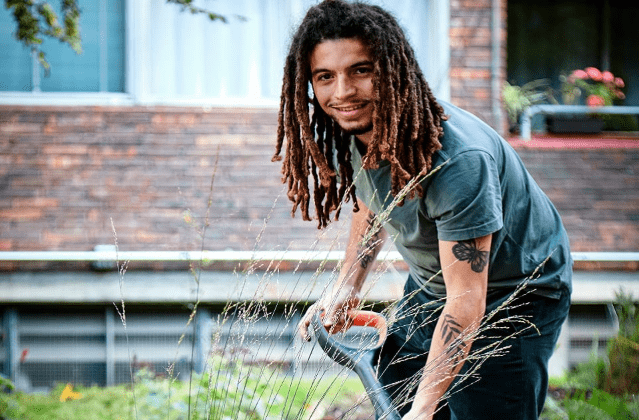Tayshan Hayden-Smith, the face of grassroots gardening in Grenfell’s wake, parts ways with RHS over values clash
Tayshan Hayden-Smith, affectionately dubbed the “Grenfell guerrilla gardener”, has officially stepped down from his ambassadorial role with the Royal Horticultural Society (RHS), citing what he called a “toxic relationship” with the UK’s leading gardening charity.
His resignation, announced just days before the prestigious Chelsea Flower Show, underscores growing tensions between grassroots activism and institutional horticulture.
Mission Clash with RHS
Hayden-Smith, who rose to prominence through his community gardening efforts in the aftermath of the 2017 Grenfell Tower tragedy, claimed the RHS’s ethos has increasingly felt misaligned with his purpose.
“Working with the charity has often felt at odds with my mission,” he said, describing the experience as emotionally draining and disheartening.
He joined the RHS in 2022, hoping to shake up the sector by championing inclusion and opening doors for marginalised communities. But after three years, he said the role left him “devalued, underestimated” and often made him feel like “a nuisance and an annoyance.”
The 28-year-old began his gardening journey on a neglected plot near Ladbroke Grove, transforming it into what would become the Grenfell Garden of Peace. From there, he founded Grow to Know, a non-profit aimed at encouraging underrepresented groups to connect with nature.
He hoped his partnership with the RHS would widen access to events like the Chelsea Flower Show, which, despite taking place nearby, remained largely unknown to his local community.
“I grew up just down the road from the Chelsea Flower Show – but no one in my community knew about it,” he told BBC Radio London.
He also pointed to the stark contrast in the borough of Kensington and Chelsea, highlighting the “inequality” between the affluent south and the more deprived north, where residents face real struggles, such as poor air quality.
Hayden-Smith didn’t shy away from criticising the financial barriers that plague mainstream horticulture. He described the high ticket prices for the Chelsea Flower Show, which range between £60 and £140, as exclusionary.
“Chelsea Flower Show is very much a place where there’s a lot of wealth,” he said. “There are gardens that cost £600,000 to £700,000 for a six-day showing.”
Such costs, he argued, send a message that certain spaces are not meant for everyone. And despite the RHS’s support, he said it wasn’t enough to offset the deeper systemic issues.
RHS Responds
In response, the RHS highlighted its ongoing efforts to support community gardening, including its backing of Hayden-Smith’s Grow to Know project with a £30,000 grant for a local garden in North Kensington.
A spokesperson stated: “We also hosted and funded a fundraising event for the same community garden, asked local RHS members to support the project, and took part in a community engagement event with planting activities.”
They added that the RHS continues to invest “millions” in grassroots initiatives across the UK, and is working on wellbeing garden partnerships with NHS facilities.
Still, Hayden-Smith’s departure raises questions about whether the UK’s biggest gardening institution is truly inclusive — or merely selective in its outreach.
What’s Next for Hayden-Smith?
While he may have cut ties with the RHS, Hayden-Smith remains steadfast in his mission to democratise horticulture. His vision is clear: bring nature to the people, regardless of postcode or paycheque.
The fight for green spaces that heal, uplift, and unite — especially in underserved communities — is far from over.






